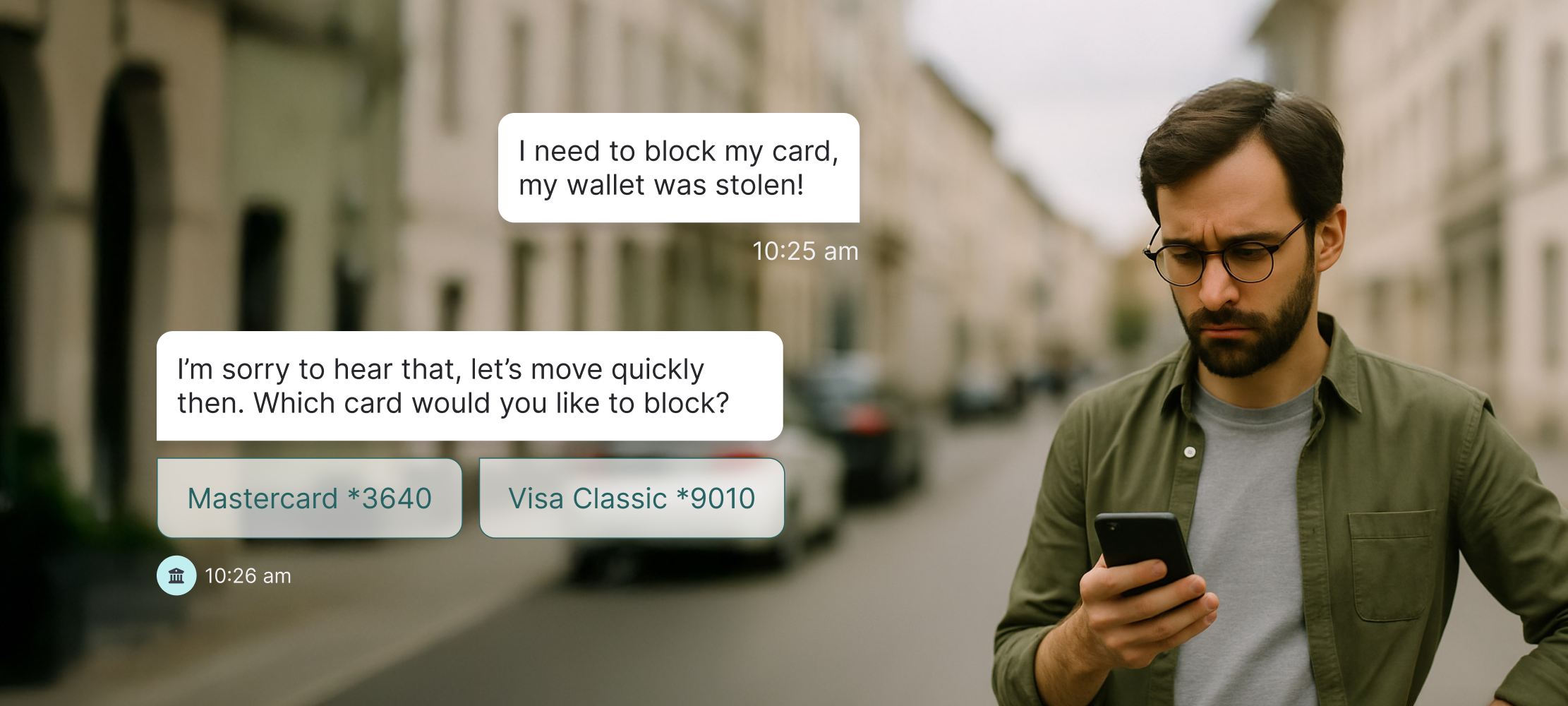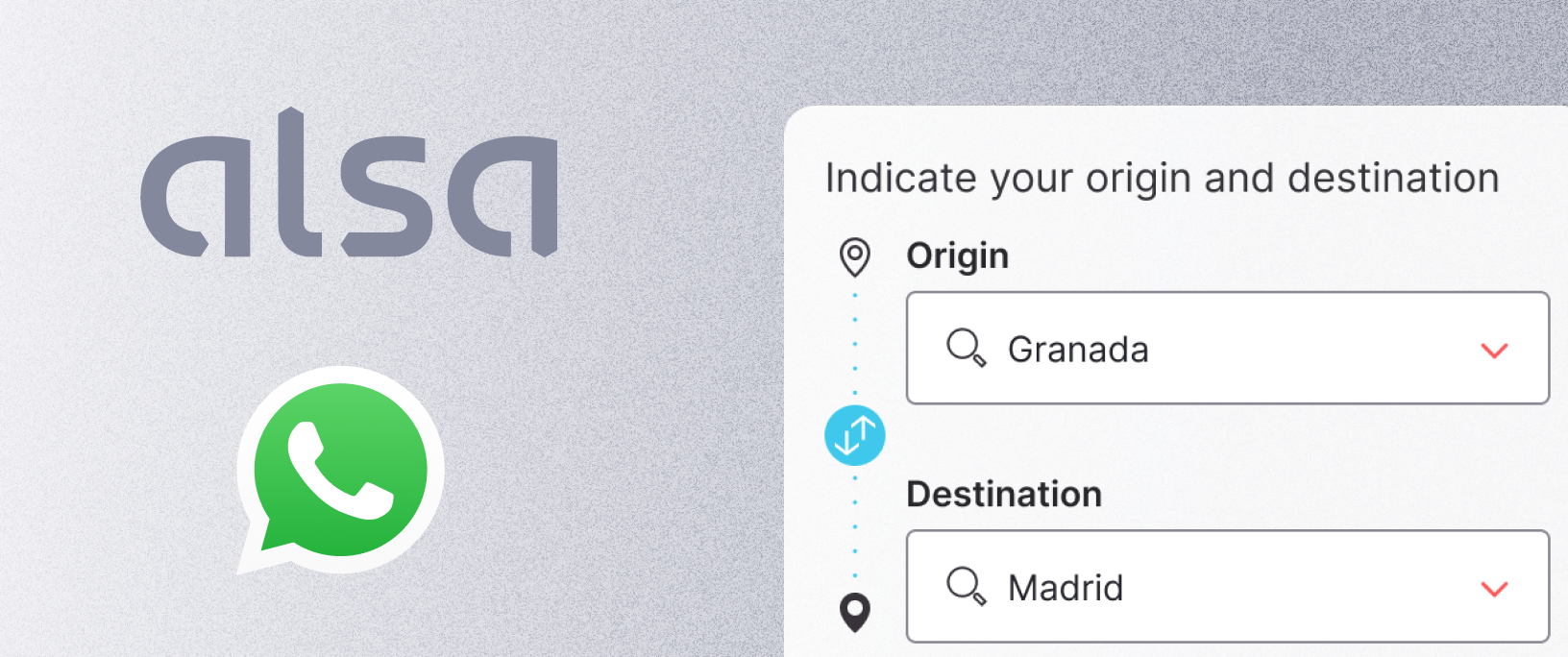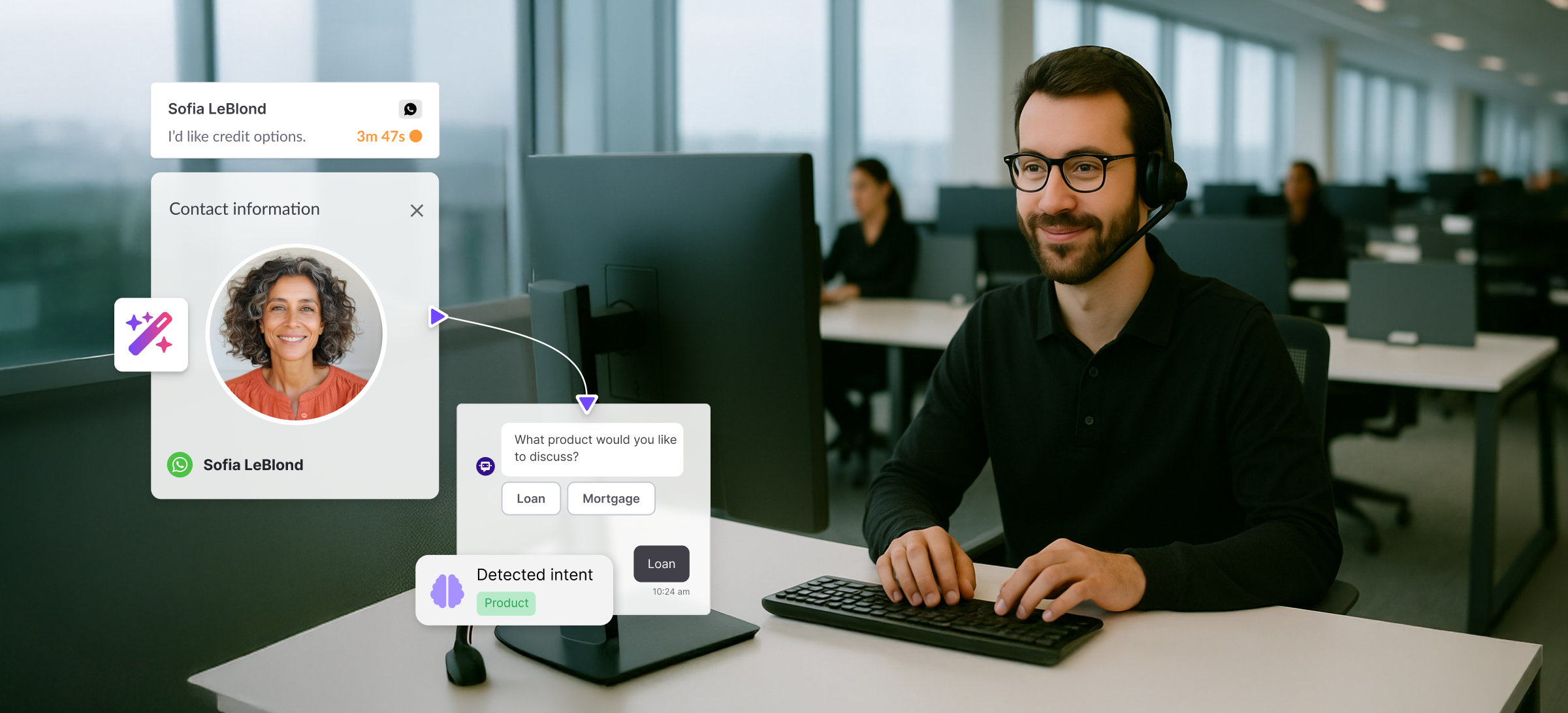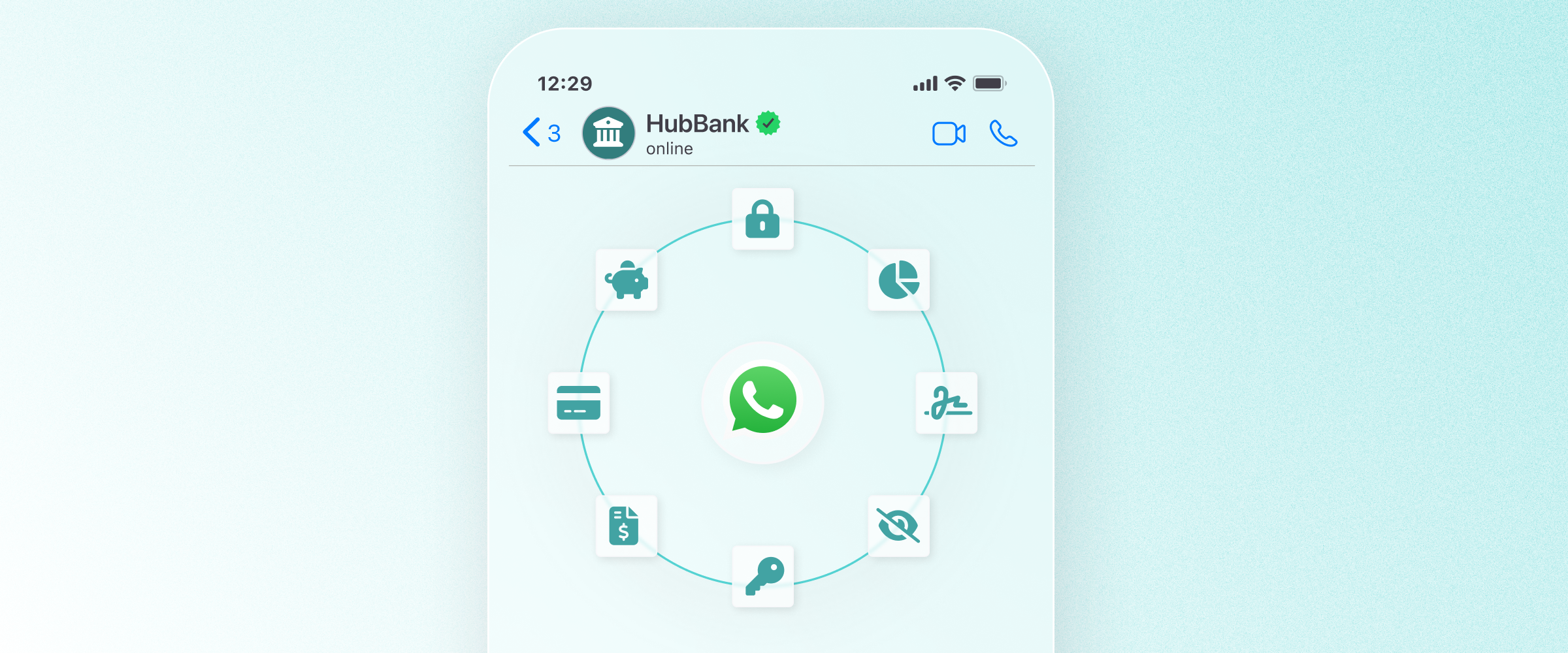Black Friday is no longer just about slashing prices—it's about scaling revenue without scaling overhead. Competition is intense, and customer expectations are higher than ever. Brands that win during Black Friday are those that prepare early and prepare smart.

Sales chatbots are quickly becoming the not-so-secret weapon in that strategy. These AI-powered assistants help ecommerce brands convert more traffic, reduce operational costs, and create better shopping experiences across high-demand periods like Black Friday.
In 2024, 70% of global Black Friday sales happened on mobile, so online retailers and ecommerce brands can’t afford to sleep on the benefits of messaging, automation, and chatbots. Here’s how to get ahead of the curve—and your competitors.
The Black Friday opportunity in ecommerce
Projections indicated 71% of consumers would shop online during Black Friday 2024, confirming that today’s shopping experience primarily occurs on ecommerce platforms, and it needs to be mobile-first, fast, and unified.
At the same time, operational costs are rising. Seasonal hiring is increasingly expensive, ad performance is plateauing, and support teams are stretched thin. Retailers need scalable solutions that can tackle the biggest ecommerce challenges by:
- Handling large volumes of customer inquiries
- Converting one-time traffic into long-term revenue
- Reducing reliance on paid ads for every conversion
That’s where Sales AI Agents and chatbots shine.
Why sales chatbots are a game-changer for Black Friday
1. They increase conversions and average basket size
AI-powered sales chatbots act like virtual personal shoppers. They guide customers through product discovery, recommend bundles, and highlight offers—all in real-time conversations on platforms like WhatsApp, Messenger, or webchat.
They’re particularly powerful at:
- Cross-selling and upselling products in a way that feels intuitive and helpful
- Suggesting last-minute add-ons to increase order value
- Highlighting fast-selling inventory to create urgency
The result? Higher conversion rates and larger average basket sizes (AOV). Brands using chatbots report increased revenue per customer, turning conversations into profitable touchpoints.
2. They recover abandoned carts
Cart abandonment peaks during Black Friday due to comparison shopping, slow checkout, or lack of information. Sales chatbots reduce this friction by:
- Following up with hesitant shoppers via messaging apps
- Offering instant answers about return policies, sizing, or delivery, reducing uncertainty at checkout
- Sending reminders or incentives to complete the purchase
With fewer barriers and more guidance, customers are more likely to follow through, reducing abandonment and increasing revenue.
3. They reduce customer acquisition costs and seasonal hiring needs
Chatbots work at scale, reducing the cost-per-contact and improving the lead-to-sale ratio. By automating the bulk of customer conversations, ecommerce brands can:
- Lower customer acquisition costs by making engagement and conversion more efficient
- Scale operations without adding seasonal staff, as bots can handle up to 80% of inquiries automatically
- Free up human agents to focus on complex, high-value interactions
This not only ensures strong margins during peak periods, it helps control CAC year-round.
4. They reduce churn and build long-term loyalty
Chatbots don’t just help brands win customers—they help them keep them. With fast, helpful, and personalised service, chatbots:
- Boost customer satisfaction scores (CSAT), which is directly linked to retention
- Provide convenience that keeps customers coming back
- Power re-engagement campaigns that drive second and third purchases
When brands invest in automated, responsive support, they see measurable gains in customer lifetime value (LTV)—a critical KPI during the holiday season and beyond.
5. They create a better pre- and post-sale experience
Sales chatbots are not just for the moment of conversion—they improve the full lifecycle. Leading ecommerce brands use them to:
- Guide customers through pre-sale questions
- Share promotions based on user intent or past purchases
- Handle post-sale support and upsell future products
This results in a cohesive, convenient shopping experience that customers remember and return to.
Want to see what automation can look like for your ecommerce brand? Book a demo and we’ll show you real-life examples adapted to your needs!
How ecommerce leaders are preparing today
Forward-thinking brands aren’t waiting until November to activate their chatbot strategy, they’re planning now, with automation at the core of their Black Friday playbook. Sales automation isn’t just about handling more queries—it’s about leveraging conversational commerce to turn those interactions into revenue-generating opportunities.
Automating for growth, messaging at scale, and connecting the dots
Implementing revenue-driving automation
It’s time to think of chatbots and AI-powered assistants as revenue enablers. During high-traffic periods like Black Friday, automation allows brands to handle thousands of queries simultaneously while actively guiding shoppers toward conversion. With intelligent automation in place, ecommerce teams can convert more with less effort and fewer abandoned carts.
Activating messaging channels
Today’s shoppers don’t want to fill out forms or wait in email queues—they want fast answers on the apps they already use. That’s why brands are doubling down on messaging platforms like WhatsApp, Instagram, and Facebook Messenger ahead of Black Friday. These channels deliver higher open rates, faster response times, and better engagement than traditional web channels because they offer great opportunities for personalisation. When paired with automation, messaging becomes a direct revenue channel where customer conversations turn into conversions in real time.
Have a look at our blog on ways to scale personalisation in retail with messaging and chat to dig deeper into the benefits of messaging apps.
Unifying customer data to improve chatbot and AI agent performance
Great CX isn’t possible without great context. By integrating messaging platforms with CRMs, loyalty systems, and ecommerce data, brands empower their AI agents to make smarter, more relevant decisions. This allows bots to access order history, recommend based on preferences, and tailor conversations to the individual. The result? More meaningful interactions and higher customer satisfaction at scale.
Creating seamless customer journeys
Customers expect smooth, connected experiences across all stages of the funnel. Leading ecommerce teams are preparing for Black Friday by breaking down silos between departments and designing unified customer journeys—from pre-sale discovery to post-purchase support. Whether a customer enters through an ad, a chatbot, or a WhatsApp message, the goal is the same: deliver a consistent, intuitive journey that builds trust and drives revenue.
Finding the right technology partner
To scale these experiences, ecommerce leaders are prioritising flexible platforms that support their long-term CX vision. They’re looking for chatbot providers that go beyond basic automations to offer integrations with CRMs, messaging apps, analytics, and human agent support to create improved ecommerce customer experiences. With the right partner, brands aren’t just ready for Black Friday—they’re ready for sustained growth all year long.
What to look for in a sales chatbot platform
Not all chatbot platforms are built for ecommerce scalability. As you prepare for Black Friday, make sure your solution supports:
- Sales AI Agents that understand context and customer intent
- Rich messaging features like product carousels, payment integrations, and discount flows
- Cross-channel deployment across WhatsApp, Instagram, webchat, and more
- CRM integration for personalised recommendations and re-engagement flows
- Multilingual and global support for international campaigns
How Hubtype can help
Hubtype’s conversational CX platform is purpose-built for ecommerce brands that need to scale revenue without scaling chaos. Our clients use Hubtype to:
- Deploy sales chatbots across multiple messaging channels
- Automate 24/7 product discovery, recommendations, and re-engagement
- Reduce support costs and improve CSAT during seasonal spikes
But beyond performance, what sets Hubtype apart is our ability to support enterprise-level scalability with the flexibility fast-growing brands need.
Built for global reach and multilingual scale
Hubtype empowers multinational ecommerce companies to launch chatbots in one language and automatically roll them out across multiple regions. No need to manually adapt your strategy per market—our platform supports over 100 languages out of the box, streamlining global expansion without added complexity.
Channel-agnostic execution
Whether it’s WhatsApp, Instagram, webchat, Messenger, or Telegram, Hubtype supports seamless cross-channel deployment. Our clients don’t waste time rebuilding flows for each interface. Instead, they manage all conversations from a unified dashboard with advanced analytics, helpdesk tools, and conversation orchestration.
Flexible integration with your stack
Enterprise ecommerce brands rely on complex ecosystems, and Hubtype fits right in. We offer flexible, low-lift integrations with CRMs, CMSs, analytics platforms, order management systems, and custom tools. This means you can connect customer conversations with the rest of your business for real-time, data-driven engagement at every touchpoint.
Ready to Scale Your Black Friday Sales?
Sales chatbots aren’t a “nice-to-have” for Black Friday anymore—they’re essential. If you're looking to reduce acquisition costs, maximise every visitor, and stand out in a crowded market, now’s the time to build your automation strategy.
Contact us and let’s talk about how Hubtype can help you win Black Friday and beyond.










.jpg)
